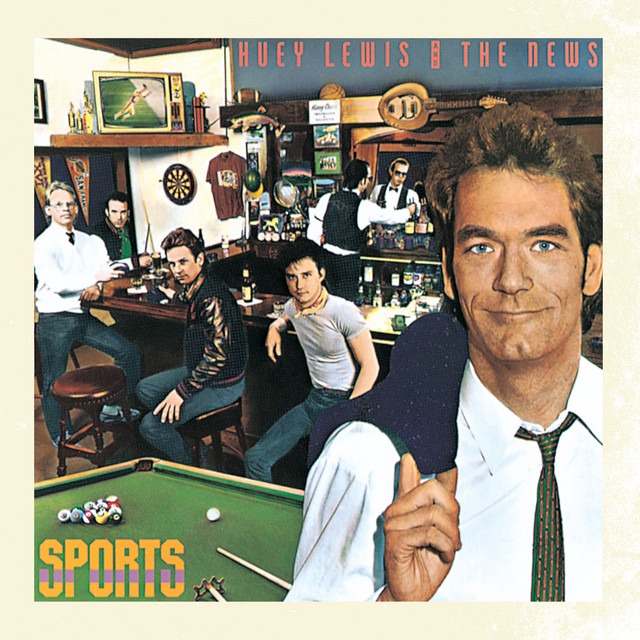For musicians, hearing is more than a sense—it’s a superpower. But even superheroes face their kryptonite. From the world’s loudest stages to the quietest moments of fear, these artists confronted hearing loss head-on. Some lost it suddenly, some gradually, but all of them found a way to turn down the volume and keep turning up the music.
Huey Lewis
In 2018, Huey Lewis was forced to cancel all upcoming tour dates after being diagnosed with Ménière’s disease, a disorder of the inner ear that caused sudden and severe hearing loss. The frontman of Huey Lewis and the News described it as sounding like “a jet engine.” And yet, the heart of rock & roll kept beating. Lewis focused on studio work and eventually released Weather, the band’s first new album in nearly 20 years—proof that while his ears changed, the music inside him never stopped.
Ludwig van Beethoven
Yes, that Beethoven. Before distortion pedals and sound checks, the great composer was already navigating profound hearing loss. By his late 20s, Beethoven began to lose his hearing, and by his 40s, he was almost completely deaf. Still, he composed some of his greatest works—including the Ninth Symphony—without ever hearing them as the audience would. He didn’t just survive hearing loss. He redefined what music could be.
Brian Wilson (The Beach Boys)
Brian Wilson has long lived with hearing loss in his right ear, likely from a childhood injury. Yet it didn’t stop him from becoming one of the most sonically innovative producers of all time. With Pet Sounds, Wilson imagined orchestral arrangements and vocal harmonies with one ear and infinite imagination. His genius wasn’t diminished—it was focused.
Phil Collins
In 2011, Phil Collins stepped away from live performance after suffering nerve damage and partial hearing loss due to years of touring and drumming. The man behind Genesis and “In the Air Tonight” cited hearing issues as a major reason for his retirement. Still, he made a comeback, launching a tour in 2017—proving that even if the volume changes, the rhythm never does.
Eric Clapton
The guitar god himself has openly discussed his struggle with tinnitus, a persistent ringing in the ears often caused by exposure to loud sound. Decades on stage with Marshall stacks and screaming solos took their toll. But Clapton didn’t quit—he adapted, performing seated and keeping the blues alive with a quieter, more intimate sound.
Pete Townshend (The Who)
You don’t earn the nickname “the loudest band in the world” without consequences. Pete Townshend, The Who’s explosive guitarist, developed tinnitus and partial hearing loss from years of ear-splitting shows. He’s since become a vocal advocate for hearing protection in the music industry—because once you’ve smashed a thousand guitars, the only thing left to save is your ears.
Will.i.am (Black Eyed Peas)
Will.i.am has tinnitus in both ears. For the Black Eyed Peas frontman and producer, it’s like hearing a constant tone that never fades. But he sees it as both a challenge and a companion: “There’s always a beat.” His drive to stay creative despite the condition makes him one of pop’s most prolific innovators.
Chris Martin (Coldplay)
The Coldplay frontman has struggled with tinnitus since his early 20s. Chris Martin credits the use of in-ear monitors and hearing protection with saving his career. He’s also raised awareness, working with hearing loss charities and reminding young fans (and musicians) that turning it down can help keep the music alive longer.
Ozzy Osbourne
Decades of heavy metal and stage pyrotechnics caught up with the Prince of Darkness. Ozzy suffers from both hearing loss and tinnitus, the latter ringing like a banshee long after the amps shut down. Yet the Black Sabbath icon is still rocking—proof that you can go off the rails on a crazy train and still hear enough to stay on track.
Barbra Streisand
Streisand has been candid about living with tinnitus since she was nine. The condition hasn’t stopped her from becoming one of the most iconic and influential singers in history. Her voice, pure and precise, defies the ringing in her ears. If anything, it’s sharpened her sense of control and tone.
Hearing loss doesn’t signal the end of a music career. It opens a new chapter—one that requires adaptation, resilience, and often, innovation. These artists remind us that the power of music doesn’t come from perfect ears. It comes from the heart, the mind, and the will to keep playing—even in silence.







